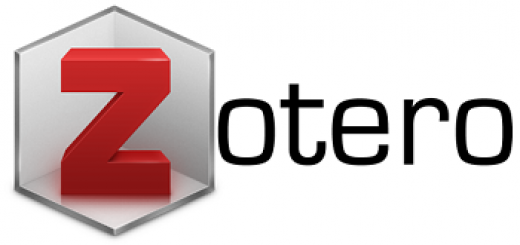The Correlation between EFL Students' Use of ICT Level and Their Autonomous Learning Level
DOI:
https://doi.org/10.17977/um064v1i112021p1479-1493Keywords:
ICT use; autonomous learning; EFL studentsAbstract
Abstract: Information and Communication Technology is a basic need for life nowadays, including education. Many people believe that ICT can promote students’ autonomous learning. Thus, this study was conducted to find whether ICT usage and autonomous learning are correlated, and to compare the attitudes between Indonesian and Moroccan EFL students. This study used quantitative correlational design. The participants were 97 English Department students of Universitas Negeri Malang. The instrument was a questionnaire with 28 items: 14 questions for ICT usage and 14 (items/questions) for autonomous learning. The data were analyzed using Pearson Product Moment Correlation Coefficient in SPSS 25 application. The findings revealed that ICT usage and autonomous learning are correlated. The other findings are Indonesians EFL students like to have discussions with peers, while Moroccans like to look for information themselves. Moreover, Indonesians have very high self-awareness and low self-confidence, meanwhile Moroccans have very high self-effort and autonomy in planning. This study brings significance to teaching practice to inform how far ICT usage contributes to autonomous learning, especially in the Covid-19 outbreak. The researcher recommended that future researchers widen the participants’ total and use the other variables outside this study’s variables since ICT usage only contributes 22.1% to autonomous learning.
Keywords: ICT use; autonomous learning; EFL students
Abstrak: Teknologi Informasi dan Komunikasi merupakan kebutuhan dasar di kehidupan jaman sekarang, termasuk pendidikan. Banyak orang percaya bahwa TIK dapat memicu otonomi belajar siswa. Maka dari itu, penelitian ini diadakan untuk menemukan korelasi antara penggunaan TIK dan otonomi belajar siswa serta membandingkan sikap mahasiswa Bahasa Inggris sebagai Bahasa Asing Indonesia dengan Maroko. Penelitian ini menggunakan desain korelasi kuantitatif. Pesertanya adalah 97 mahasiswa jurusan Sastra Inggris Universitas Negeri Malang. Instrumennya menggunakan kuesioner yang terdiri dari 28 item, 14 untuk penggunaan TIK dan 14 untuk otonomi belajar. Data dianalisis menggunakan Pearson Product Moment Correlation Coefficient pada aplikasi SPSS 25. Hasilnya, penggunaan TIK dan otonomi belajar saling berhubungan. Temuan lainnya yaitu mahasiswa Indonesia suka berkomunikasi dengan teman, sedangkan mahasiswa Maroko suka mencari informasi sendiri. Selain itu, mahasiswa Indonesia memiliki kesadaran diri yang sangat tinggi dan kepercayaan diri yang rendah, sedangkan mahasiswa Maroko memiliki kemandirian dan otonomi perencanaan yang sangat tinggi. Penelitian ini membawa signifikansi pada praktik mengajar karena menginformasikan sejauh mana penggunaan TIK berkontribusi terhadap belajar mandiri, terutama di masa wabah Covid-19. Peneliti merekomendasikan peneliti selanjutnya untuk memperluas total peserta dan menggunakan variabel lain di luar variabel penelitian ini karena penggunaan TIK hanya berkontribusi 22,1% terhadap belajar mandiri.
Kata kunci: penggunaan TIK; belajar mandiri; siswa bahasa Inggris sebagai bahasa asing
References
Ahmadi, D. M. R. (2018). The use of technology in English language learning: A literature review. International Journal of Research in English Education, 3(2), 115–125. doi: 10.29252/ijree.3.2.115
Ariebowo, T. (2021). Autonomous learning during Covid-19 pandemic: Students’ objectives and preferences. Journal of Foreign Language Teaching and Learning, 6(1), 56–77. doi: 10.18196/ftl.v6i1.10079
Ariza, A., & Sánchez, M. S. (2013). Effectiveness of the integration of ICT tools and activities to foster awareness as the first stage to reach learning autonomy. Gist Education and Learning Research Journal, 7(7), 154–172. Retrieved from http://files.eric.ed.gov/fulltext/EJ1102672.pdf
Bei, E., Mavroidis, I., & Giossos, Y. (2020). Development of a scale for measuring the learner autonomy of distance education students. European Journal of Open, Distance and E-Learning, 22(2), 133–144. doi: 10.2478/eurodl-2019-0015
Budianto, L. (2014). Promoting students’ autonomous learning through ICT based learning in ICP: A case study. LiNGUA: Jurnal Ilmu Bahasa Dan Sastra, 9(2). doi: 10.18860/ling.v9i2.2734
Chee, J. (2015). Pearson’s Product Moment Correlation Coefficient (PPMCC). Bourne Mouth University. Retrieved from https://media3.bournemouth.ac.uk/spss/focus_pages/focus_10a.htm
Chouthaiwale, D. S. S., & Alkamel, M. A. (2018). The positive effect of ICT on the English language learning and teaching. Dialoguing Borders: Vital Issues in Humanities, Commerce, IT and Management, 1(November), 1–8. Retrieved from https://www.researchgate.net/publication/329572075_The_positive_Effect_of_ICT_on_the_English_Language_Learning_and_Teaching
Cortazzi, M., Pilcher, N., & Jin, L. (2011). Language choices and ‘blind shadows’: Investigating interviews with Chinese participants. Qualitative Research, 11(5), 505–535. doi: 10.1177/1468794111413225
Falck, O., Mang, C., & Woessmann, L. (2018). Virtually no effect? Different uses of classroom computers and their effect on student achievement. Oxford Bulletin of Economics and Statistics, 80(1), 1–38. doi: 10.1111/obes.12192
Ghasemi, B., & Hashemi, M. (2011). ICT: Newwave in English language learning/teaching. Procedia - Social and Behavioral Sciences, 15, 3098–3102. doi: 10.1016/j.sbspro.2011.04.252
Gilakjani, A. P., & Sabouri, N. B. (2013). Role of Iranian EFL teachers about using pronunciation power software in the instruction of English pronunciation. English Language Teaching, 7(1), 139–148. doi: 10.5539/elt.v7n1p139
Gissane, C. (2015). Is the data normally distributed? Physiotherapy Practice and Research, 37(1), 57–60. doi: 10.3233/PPR-150069
Gómez, M. L. M., Alcántar, M. del R. C., Torres, C. I., Montes, J. F. C., & Padilla, A. A. J. (2018). Use of ICT for learning the English language. IJAEDU- International E-Journal of Advances in Education, 4(11), 192–198. doi: 10.18768/ijaedu.455621
Hafa, H., & Moubtassime, M. (2021). The use of ICT in learning English: A study of students in Moroccan universities. SAR Journal - Science and Research, 4(1), 19–28. doi: 10.18421/SAR41-04
Kabir, S. M. S. (2016). Basic guidelines for research: An introductory approach for all disciplines. In Theoretical Economics Letters (First). Chittagong-4203, Bangladesh: Book Zone Publication. Retrieved from https://www.scirp.org/reference/referencespapers.aspx?referenceid=2789552%0Ahttps://www.researchgate.net/publication/325846997_METHODS_OF_DATA_COLLECTION
Khaidir, F., Tersta, F. W., & Afria, R. (2020). Students’ perception of autonomous learning activities. J-SHMIC : Journal of English for Academic, 7(1), 66–76. doi: 10.25299/jshmic.2020.vol7(1).4599
Khotimah, K., Widiati, U., Mustofa, M., & Ubaidillah, M. F. (2019). Autonomous English learning: Teachers’ and students’ perceptions. Indonesian Journal of Applied Linguistics, 9(2), 371–381. doi: 10.17509/ijal.v9i2.20234
Latief, M. A. (2017). Research Methods on Language Learning: An Introduction (Sixth). Malang: Universitas Negeri Malang.
Linnes, C., & Metcalf, B. (2017). iGeneration and their acceptance of technology. International Journal of Management & Information Systems (IJMIS), 21(2), 11–26. doi: 10.19030/ijmis.v21i2.10073
Melvina, Lengkanawati, N. S., & Wirza, Y. (2021). The use of technology to promote learner autonomy in teaching English. Proceedings of the Thirteenth Conference on Applied Linguistics (CONAPLIN 2020), 546, 315–321. doi: 10.2991/assehr.k.210427.048
Missoum, M. (2015). ICT use and EFL learner autonomy -student questionnaire. doi: 10.13140/RG.2.2.11890.15047
Orakci, Ş., & Gelişli, Y. (2017). Learner autonomy scale: A scale development study. Malaysian Online Journal of Educational Sciences, 5(1), 25–36. Retrieved from https://eric.ed.gov/?id=EJ1156953
Oulmaati, K., Ezzahri, S., & Samadi, K. (2017). The use of ICT in the learning process among the students of History and Civilization at Abdelmalek Essaadi University, Morocco. International Journal of Scientific Engineering and Research, 8(2), 972–979. Retrieved from https://hal.archives-ouvertes.fr/hal-01512370
Oussou, S. (2020a). Promoting learner autonomy. International Journal of Language and Literary Studies, 2(2), 156–167. doi: 10.36892/ijlls.v2i2.278
Oussou, S. (2020b). The effectiveness of EFL students’ use of ICT on developing their autonomy. Journal of Studies in Language, Culture and Society (JSLCS), 3(1), 89–101. Retrieved from https://www.researchgate.net/publication/342924060_The_Effectiveness_of_EFL_Students’_Use_of_ICT_in_Developing_their_Autonomy
Schober, P., & Schwarte, L. A. (2018). Correlation coefficients: Appropriate use and interpretation. Anesthesia and Analgesia, 126(5), 1763–1768. doi: 10.1213/ANE.0000000000002864
Sibi, K. J. (2020). English language skills through ICT methods. Sparkling International Journal of Multidisciplinary Research Studies, 3(July), 31–36. Retrieved from https://www.researchgate.net/publication/343058414_ENGLISH_LANGUAGE_SKILLS_THROUGH_ICT_METHODS
Tomasouw, J., & Marantika, J. E. R. (2020). Learner autonomy as strategy to enhance the quality of learner. Proceedings of the 3rd International Conference on Learning Innovation and Quality Education (ICLIQE 2019), 397, 504–510. doi: 10.2991/assehr.k.200129.063
UNESCO. (n.d.). Information and communication technologies (ICT). Retrieved November 7, 2020, from http://uis.unesco.org/en/glossary-term/information-and-communication-technologies-ict
van Griethuijsen, R. A. L. F., van Eijck, M. W., Haste, H., den Brok, P. J., Skinner, N. C., Mansour, N., … BouJaoude, S. (2015). Global patterns in students’ views of science and interest in Science. Research in Science Education, 45(4), 581–603. doi: 10.1007/s11165-014-9438-6
Downloads
Published
How to Cite
Issue
Section
License
Copyright (c) 2021 Devon Evita, Siti Muniroh, Nunung Suryati

This work is licensed under a Creative Commons Attribution-ShareAlike 4.0 International License.





























